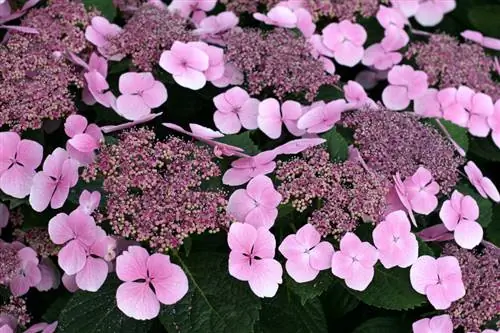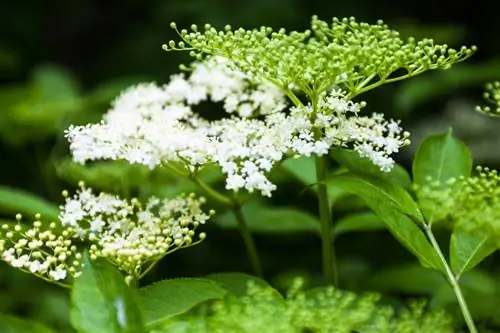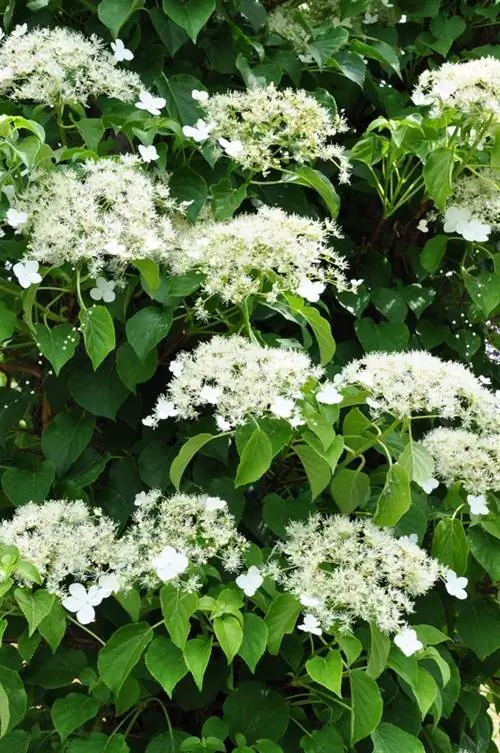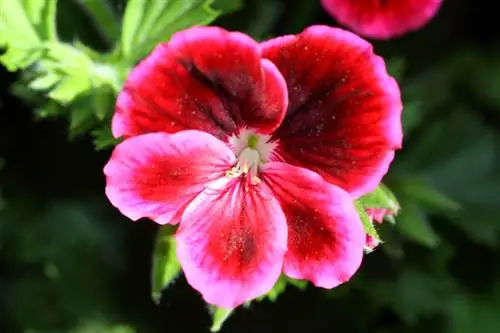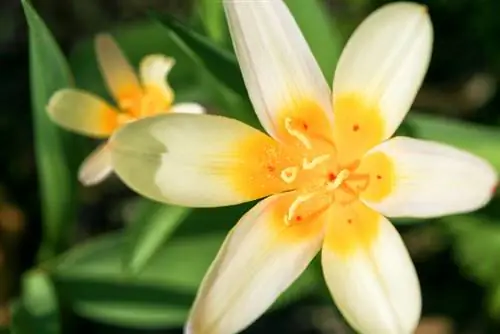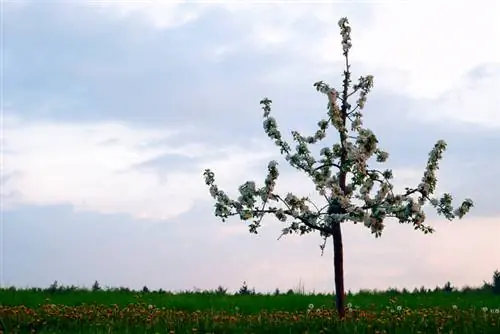- Author admin leonars@hobbygardeners.com.
- Public 2023-12-16 16:46.
- Last modified 2025-01-23 11:20.
Like the farmer's hydrangeas (Hydrangea macrophylla), the plate hydrangea (botanically Hydrangea serrata) also comes from Japan, only the var. koreana comes from Korea. It is very similar to the lacecap or plate forms of Hydrangea macrophylla, but is more delicate in all parts. The growth heights achieved are on average between 30 and 50 centimeters lower than those of farmer's hydrangea varieties.
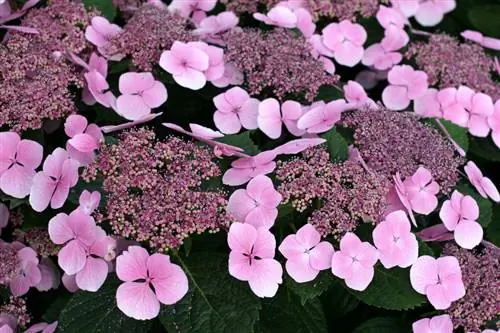
Which varieties are hydrangeas?
Popular hydrangea varieties include Bluebird, Blue Deckle, Golden Sunlight, Impératrice Eugenie, Preziosa, Prolifera, Rosalba, Tiara and Veerle. Their flower color varies from pink to light blue depending on the pH value and the flowering period extends from June to September.
Plate hydrangeas are very frost hardy
Typical of plate hydrangeas is a slight tendency to form short runners, which is more pronounced in some subspecies. Hydrangea serrata has similar location requirements as Hydrangea macrophylla, but prefers even more partially shaded locations. The leaves burn very easily in the sun and cause unsightly brown leaf edges. The frost hardiness, on the other hand, is clearly better than that of Hydrangea macrophylla, which proves to be an advantage in cold winter areas.
Plate hydrangeas and farmer's hydrangeas can be easily combined
The flowering period of the Serrata varieties is about two to three weeks before the flowering period of the Macrophylla varieties, so both varieties can be easily combined to extend the flowering period.
The different varieties of Hydrangea serrata
In the table below you will find a list of some of the most beautiful hydrangeas.
| Name | Flower color | Flowering time | Leaves | Growth height | Growth width | Features |
|---|---|---|---|---|---|---|
| Hydrangea serrata var. koreana | depending on the pH value, pink to sky blue, darker inner flowers | June to September | light green, narrow ovoid | 60 centimeters | 120 centimeters | spreads through runners |
| Bluebird | depending on the pH value, pure pink to sky blue | July to October | light green, egg-shaped | 120 centimeters | 150 centimeters | loosely layered shrub |
| Blue Deckle | pink or light blue depending on pH value | July to October | dark green, broadly ovoid | 120 centimeters | 150 centimeters | intense red autumn colors |
| Golden Sunlight | white to creamy white, inner flowers pink | June to September | yellow-green, egg-shaped | 60 centimeters | 80 centimeters | rare leaf coloring |
| Impératrice Eugenie | depending on the pH value, light blue to whitish-pink, inner flowers violet | July to September | dark green, broadly ovoid | 120 centimeters | 150 centimeters | many, rather small flower umbels |
| Preziosa | light pink, fading purple | July to September | very dark, broadly ovoid | 125 centimeters | 150 centimeters | almost ball-shaped flower umbels |
| Prolifera | pink or light blue depending on pH value | June to August | light green, narrow ovoid | 75 centimeters | 100 centimeters | slow growing |
| Rosalba | light pink or ice blue depending on pH value | June to September | dark green, narrow ovoid | 125 centimeters | 150 centimeters | slow growing |
| Tiara | depending on the pH value, pale pink to light blue | June to September | medium green, narrow ovoid | 75 centimeters | 100 centimeters | delicate flower umbels |
| Veerle | pink to azure blue depending on pH value | June to September | dark green, egg-shaped | 125 centimeters | 150 centimeters | light red to purple autumn color |
Tips & Tricks
Like farmer's hydrangeas, many of the plate hydrangeas bloom blue in acidic soil. However, you have to help with a special fertilizer, hydrangea blue (€6.00 on Amazon).

